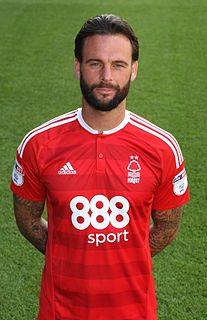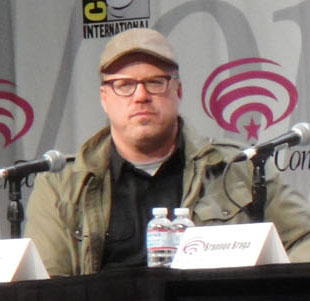A Quote by Danny Fox
If you can see a world within a portrait I would be happy with that. I don't want to tell the story with a painting, though. I'm trying to get away from the story- from the beginning and the ending.
Related Quotes
Please tell me a story about a girl who gets away." I would, even if I had to adapt one, even if I had to make one up just for her. "Gets away from what, though?" "From her fairy godmother. From the happy ending that isn't really happy at all. Please have her get out and run off of the page altogether, to somewhere secret where words like 'happy' and 'good' will never find her." "You don't want her to be happy and good?" "I'm not sure what's really meant by happy and good. I would like her to be free. Now. Please begin.
It's only a story, you say. So it is, and the rest of life with it - creation story, love story, horror, crime, the strange story of you and I. The alphabet of my DNA shapes certain words, but the story is not told. I have to tell it myself. What is it that I have to tell myself again and again? That there is always a new beginning, a different end. I can change the story. I am the story. Begin.
So often with beginning writers, the story that they want to start with is the most important story of their life - my molestation, my this, my horrible drug addiction - they want to tell that most important story, and they don't have the skills to tell it yet, so it ends up becoming a comedy. A powerful story told poorly becomes funny, it just makes people laugh behind their hands.
Vera said: 'Why do you feel you have to turn everything into a story?' So I told her why: Because if I tell the story, I control the version. Because if I tell the story, I can make you laugh, and I would rather have you laugh at me than feel sorry for me. Because if I tell the story, it doesn't hurt as much. Because if I tell the story, I can get on with it.
I was working within a figurative representational framework, and there was a sense of reading the painting as a transparency, or truth, or autobiography, which I think is partially the burden of artists of color - or women, or anybody who is representing a so-called minority position. Are you actually telling a true story, or your own story? You don't just get to tell a story. The readings of the work didn't necessarily conform to my own understanding of mythology, where violence and eroticism and the body and all of these different forms coexist all the time.
































